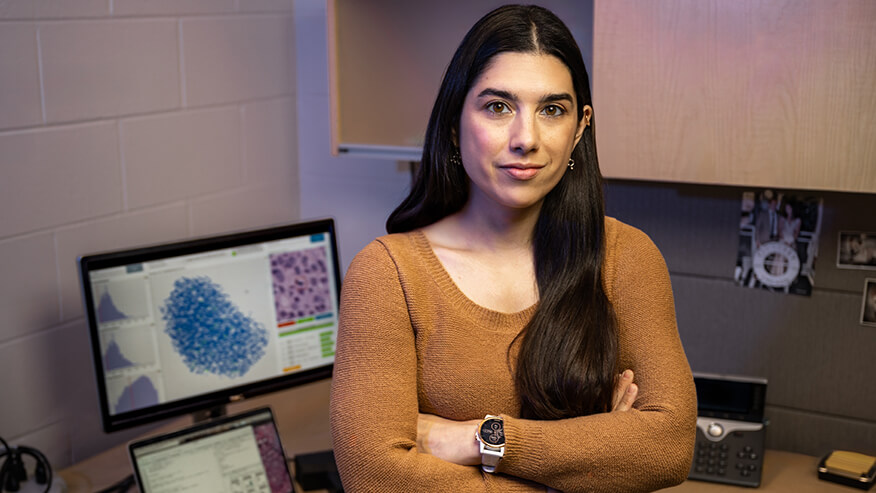Graduate Programs
Earn your MS or PhD in Comparative Pathobiology at Purdue Veterinary Medicine. Study topics like cancer biology, infectious disease, public health, toxicology, and more. Open to DVMs and students with strong biological science backgrounds.





